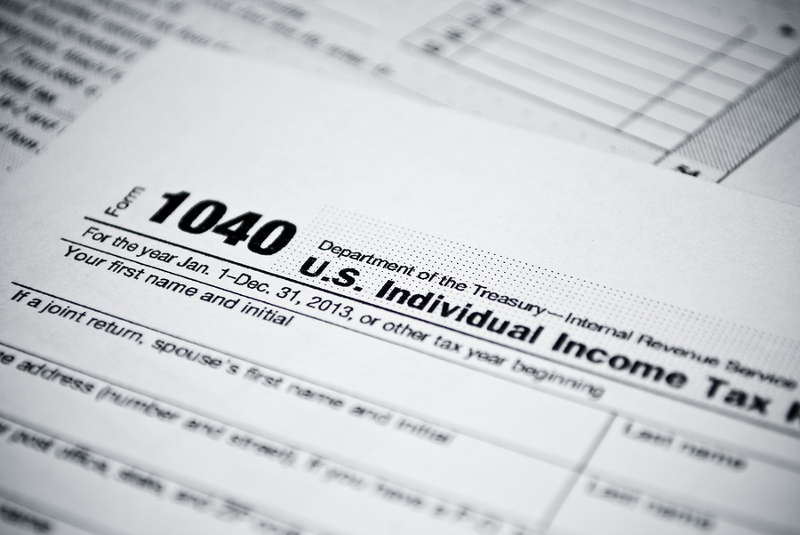Most people believe that there is room to make a mistake on their taxes because the tax code is so complex and difficult to understand. While it is true that taxes are complex, that does not mean that a taxpayer has a free pass to submit inaccurate or incomplete tax information to the IRS. Furthermore, even if you did not intend to make a tax mistake, if you behavior can be interpreted as concealing the mistake or income, you could face even harsher penalties in the form of a willful tax crime or violations. Acts that are willful carry harsher punishments which may include fines or prison time.
If you have tax concerns or are worried that your actions may be perceived by an IRS agent as willful, contact the Hoffman Tax Law Offices at 800-897-3915. We are dedicated to helping taxpayers resolve their civil and criminal tax issues with the IRS.
What is a willful tax violation?
While prosecutions for willful tax crimes and violations is typically reserved for serious mistakes, they can occur in a broad array of circumstances. A willful tax violation is one where the taxpayer has a known legal duty and he or she intentionally or voluntarily fails to perform that duty. Willfulness will be inferred by the IRS agent from your records, actions, demeanor and interactions. Willfulness simply means that you knew that your conduct was against the law, but your decided to act in that fashion regardless. Willful blindness is included in willful behaviors because it involves a voluntary and intentional attempt to avoid learning of one’s legal responsibility. Other examples of conduct that may be interpreted as willful includes:
- Failure to disclose income of certain types that would be subject to a higher rate of taxation
- Reporting that you received $5,000 in gifts when total gifts equaled $15,000.
- Deducting a family vacation as a business expense.
- Failing to declare a foreign financial account.
- Failing to file FBAR.
- Using offshore accounts to conceal assets or income.
Depending on the circumstances and optics present, even innocent mistakes can be interpreted as willful attempts to evade or defeat tax. While there are many valid reasons to set up a trust or corporation, doing so while simultaneously making a serious tax mistake can give the appearance of impropriety. Similarly, dealing in what the IRS believes to be excessive amounts of cash, keeping transactions just below the $10,000 reporting requirement, using traveler checks and other innocent acts can all be interpreted as willful conduct. If more than one of these acts are present, it can become even more difficult to explain even innocent behaviors. This can, potentially, trigger an audit or transform civil penalties into criminal tax penalties including the possibility of a federal prison sentence.

The TurboTax Defense is, often, not a defense
While in the pre-computer age few people would have considered doing their taxes themselves, such actions are very commonplace today. While tax software has improved significantly, it is not foolproof. Tax software can be manipulated by unscrupulous individuals or misinterpreted by an honest, but misguided taxpayer. Unfortunately the line between the willful violator and the inadvertent one isn’t always clear. Furthermore, the defense of, “It was my tax software’s fault,” may not carry the weight that many taxpayers would assume.
In Au v. Commissioner, Hopson v. Commissioner, Lam and Chang v. Commissioner, and Parker v. Commissioner the taxpayer raised the defense that he or she relied on tax software and that the mistake was the fault of the software. In each of these cases the defense was found to be unpersuasive. However in a matter brought after a patent attorney made tax mistakes, Olsen v. Commissioner, the Tax Court found some merit in this defense. Despite IRS objections, the court found that Mr. Olsen was not liable for the accuracy-related penalty imposed due to the understatement and underpayment of his taxes. “The most important factor in deciding whether a taxpayer acted with reasonable cause and in good faith is the extent of the taxpayer’s effort to assess the proper tax liability.” In light of petitioner’s unfamiliarity with the particular form that gave rise to the error, his diligent attempts to understand the form and his obligations, and use of error correcting software features the court found Mr. Olsen to be not liable for the penalty. However the court did note that this case provided unique facts and circumstances so it is important to understand that this defense is rather limited.
If you have tax concerns, our dedicated and experienced attorneys can help. To schedule a tax consultation, call the Law Offices of Robert Hoffman at (800) 897-3915 or contact us online.


